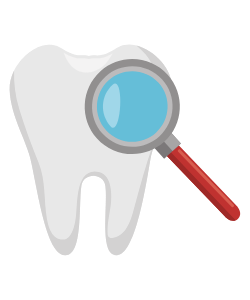Your tooth consists of three layers. The exterior layer is called the enamel, the second layer, the dentin, and the third layer, the pulp. The pulp is where the nerves and live tissue of your tooth are. When the pulp is exposed to the outside, it becomes contaminated, and you suffer from an infection. The pulp can be exposed in different circumstances, like when you have a fractured tooth or a cavity. In the case of pulp exposure, your dentist will recommend a root canal treatment.
If you are scheduled for a root canal treatment, you probably envision a complicated surgery involving a lot of pain. However, these procedures are not that complex nor that painful. Here is some basic information on root canal procedures.
What Is A Root Canal Treatment?
A root canal treatment involves going inside the pulp area of your tooth and removing the infected tissue. The infected space is disinfected, then closed off using special materials. Nowadays, these treatments are done using advanced materials and techniques, making them more comfortable and faster than in the past.
Your dentist will first perform an X-ray to locate the decay or infected area of your tooth. For the pain, your dentist will administer local anaesthesia. Finally, an opening will be made, and thereafter the diseased pulp will be removed. When this procedure is complete, your dentist will place a crown on the treated tooth to protect it against fracture.
What Are The Signs That You Need A Root Canal Treatment?
Some of the signs that you need a root canal include the following:
- A cracked tooth
- Severe pain while biting or chewing
- Swelling and darkening of gums
- Deep decay
- Sensitivity to cold or hot foods
How Do You Care For Teeth After A Root Canal Treatment?
Root canals have a high success rate. With proper care, your restored tooth can last a lifetime. Here are some tips that will help you care for your teeth after a root canal procedure:
- Observe oral hygiene. Brush your teeth twice in a day, and floss once.
- Visit your dentist regularly. Examinations and cleanings by dentists are crucial if you are to maintain healthy teeth.
- Avoid hard foods. Chewing on things like ice can break or chip your teeth and even harm your root canals.
A root canal procedure is meant to get rid of infectious material in your tooth. The procedure is mostly recommended for tooth fractures, decay and seriously infected teeth. It is a fairly painless and effective treatment for preserving your teeth. If you experience any of the symptoms highlighted above, you should consult your dentist to determine whether you need a root canal.
Share
